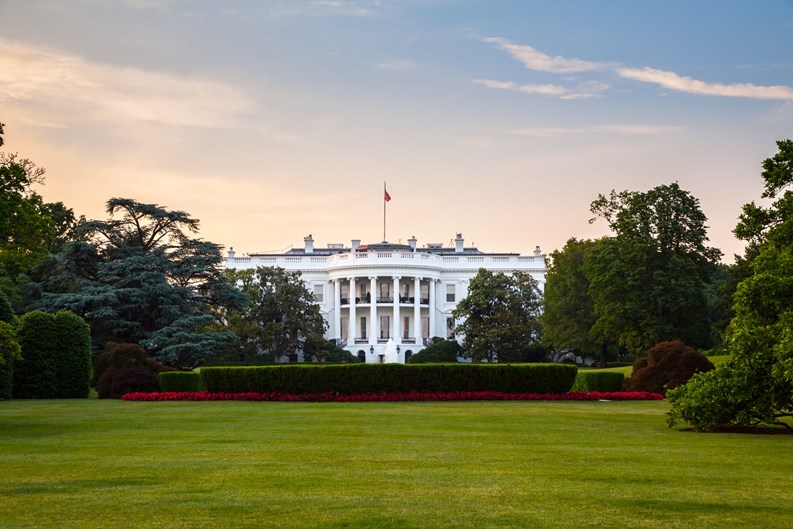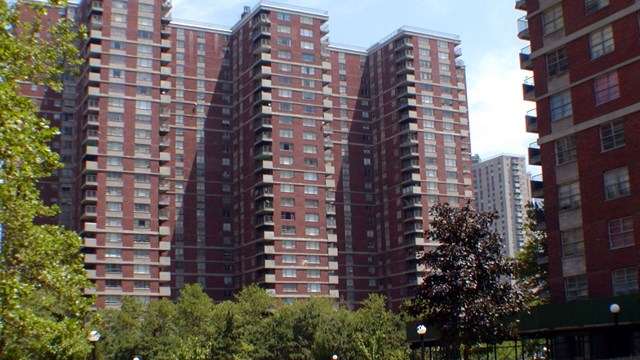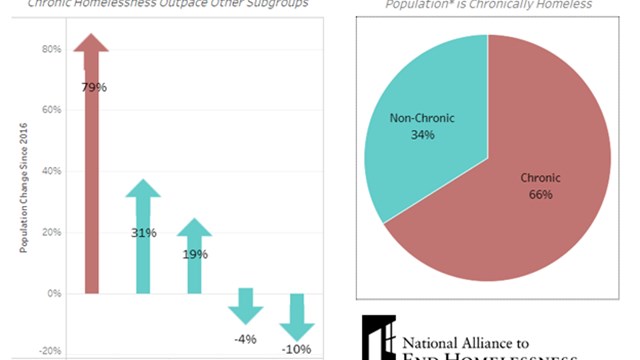In last year’s presidential election, Donald Trump lost New York City, resoundingly. According to final election results, he received 461,174 votes across the five boroughs, or 18.4 percent, compared with 1,969,920 ballots cast for Hillary Clinton. In Jamaica, Queens where Trump was born, and Jamaica Estates where he grew up, a little less than a quarter of residents voted for him. In Manhattan, where he rose to fame and prominence by virtue of his vaunted real estate deals, the percentage was even lower: 58,935 for him, and 515,481 for Clinton. Not a single precinct in the city’s glamour borough, home to the tower that bears his name, went for Trump. The demographics of the New York neighborhoods that went red mirror those of the states in the wider U.S. that did so: the southern half of Staten Island, the Rockaways, Borough Park, Whitestone, and Howard Beach.
Regardless of party affiliation or political leaning however, most would agree that the 2016 presidential election was brutal. Even here, in the poster city for “coastal elites” and progressive policies, hundreds of thousands of people voted for and/or endorsed Trump. On November 9, 2016, the city that came together remarkably after the terrorist attacks of 9/11 threatened to fracture like the rest of the country seemed to be doing – and that was before Trump’s travel ban and other controversies and scandals further polarized the populace. At this point, roughly a year into the Trump presidency, the mood and rhetoric in the country seems as divisive as at any time since the Civil War. New York is not immune to this – and neither are the microcosms represented by our co-op and condo communities. So, how is this tension playing out in that setting?
Bagel With a Schmear...and Hold the Politics.
In terms of the inner workings of a multifamily residential building, the most prudent recourse is probably to stay off politics completely. Love him or hate him, Trump’s policies have little to do with, say, setting the annual budget, or determining which vendor you’ll hire to fix the roof. With Trump being the polarizing figure he is, most professionals are taking extra precautions to avoid the subject altogether.
“Any time I go into an annual meeting – or any meeting – the number one thing I’m thinking is don’t be political,” says attorney Adam Leitman Bailey of Adam Leitman Bailey P.C., in Manhattan. “We represent 250 co-ops and condos; you will never hear me make a political statement, unless it’s to promote real estate. It’s not just about pleasing our clients and keeping them. It’s that we need to get along with every politician in New York. By taking sides, we may hurt our ability to help our condos and co-ops get things that they want.”
When Trump’s name does come up in conversation, Leitman Bailey has a unique way of changing the narrative: he brings up the time he sued Trump...and won. “If a person says, ‘Donald Trump is a monster,’ I have to deflate that. And I have the greatest way of doing that. The way I deflate it is, I say, ‘There’s only one person in America who’s ever beaten Donald Trump before the election, in any case, and that’s me.’ So I impress the anti-Donald Trump people right there. And even the pro-Trump people think that’s pretty cool that I was the one to do it. So that’s usually my way to get off of Trump as a topic.” While his pivot can only work for him, having a go-to response ready to deflate the subject is a prudent strategy.
In matters of board business, neutrality is essential, because while anti-Trump agreement can be a unifying force, a political argument about Trump can be especially divisive. And unless you live in Trump Tower or one of the other buildings that bear his name, he has nothing to do with the board’s activities. Put another way: you want to be Switzerland.
Fortunately, the bylaws of a co-op or condo help make this easier that it would in perhaps a suburban development where lawn signs are more or less unregulated. “When we have local elections, you have Democrats and Republicans or factions within each of the parties, and somebody may want to put up a sticker, or a sign, or maybe even put flyers in the lobby,” says Allen H. Brill, a senior partner with Manhattan law firm Brill & Meisel. “It’s not unusual for a board to regulate that. It’s similar to the situation at the holidays, when people want symbols or decorations from different religions in the lobby. The board can control that. They can say no to everything, or they can decide to put up both a tree and a menorah, or something for Kwanzaa. That’s part of the interior of a privately-owned building, but it’s a common area under the control of the board.”
This is so well established that few waste their energy posting Trump-related signage on their apartment door or in a street-facing window. “Most co-ops and condos don’t allow partisan information in either direction, ever, in election situations, other than a clear announcement of where the polls are,” says Mary Ann Rothman of the Council of New York Cooperatives & Condominiums (CNYC). “It’s really rare. It’s been decades since I’ve heard about fights over posters on the door. Most buildings will say that nothing goes on your door.”
In the age of Trump, this is a position few seem eager to change—especially in a city that so overwhelmingly opposed him. “I had two annual meetings this week. Donald Trump did not come up as a topic in either of them,” says Leitman Bailey. “One of these meeting was held in an LGBTQ building. This is Chelsea, they’re extremely liberal, and no one is mentioning Donald Trump. They had many problems that they were talking about, many, many issues, but none of them were about who the president of the United States is. They may be posting on Facebook, and protesting in public, but I think when it comes down to real problems, and what’s in front of them, they can’t connect it to Donald Trump. And they realize that, and they’re focusing on their problems. The pipes aren’t working, there’s a noisy neighbor, there’s a smoker down the hall, there’s a hoarder…all the problems that can possibly happen in a building. They’re focusing on that.”
Buying the Brand
Along with day-to-day maintenance and administration, the business of running a co-op or condo building necessarily means the buying and selling of real estate. And some real estate in New York City was developed by, and/or bears the name of the president of the United States. The Trump brand has taken quite a hit in the last 18 months. For this reason – and also under the banner of protest – some buildings have looked to remove Trump’s name from their register.
“It’s no different than if you had someone from Wall Street who gave money for a library and then later commits a crime,” says Brill. “The recipient, such as a university, may want to take that person’s name off the building. And it’s the same thing with other names, like [Bernie] Madoff, that go on a gift or a donation or a building. If the majority of the people want to make a change, I don’t see any reason why that wouldn’t withstand any kind of challenges. I wouldn’t say this sort of thing is typical, but it’s not unusual. Universities are dealing with names on schools. Yale just changed the name of one of its colleges. Princeton is dealing with the Wilson school. (Princeton University has been under pressure to remove former U.S. President Woodrow Wilson’s name from its School of Public and International Affairs and from a residential college over Wilson’s segregationist views. -Ed) Each situation is different.”
Leitman Bailey has had several calls about removing the Trump name from buildings.
“Four of the Trump buildings wanted to change their names, and consulted with me about what it would take to do that. He built them, and they were considering removing ‘Trump’ from the name. They had license agreements with him. Their thought was, ‘...Is this going to hurt our property values or not?’ They really believed that it may get in the way of people wanting to buy their units, and that it may hurt property values.”
While “Trump” is certainly not the prestige brand is once was, there is not much evidence that an apartment in a Trump-named building wouldn’t sell – and sell for the right price – for that reason. New Yorkers have dealt with far worse hazards to score a nice pad than a possibly unpalatable name on the marquee.
“From a dollars-and-cents point of view, most units don’t sell based on the name that’s written on the building,” says Brill. “I don’t think that’s the critical factor when somebody’s looking at an apartment. They’re looking at the quality of the building, the economics, the size, and the location, as well as perhaps who the other occupants of the building are. But if you had equal apartments, and one of them had the name Trump on it, and the other one didn’t, some people might say that they don’t want to go with the building of that name, because they don’t want to be affiliated with it.” And of course, a percentage of buyers might spring for the Trump-branded apartment precisely because of that affiliation.
A Matter of Civility
A survey of city residents suggests that New Yorkers have not changed much under the new administration, no matter how provocative Trump and his policies have been. “To be perfectly honest, I’ve seen no more or no less civility than in an ordinary year,” Rothman says. “New York is New York, and I think for the most part we’re very nice, very friendly people.”
In certain quarters, such as the Westbeth Artists’ Housing in Greenwich Village, the population marches in anti-Trump lockstep. “Everyone here hates Trump!” one resident reports. “There’s definitely a lot of activist stuff around, but everyone agrees with each other.”
The situation is much the same in DUMBO. “Overall, since we’re in the heart of liberal urban America, there isn’t an enormous diversity of views about Trump,” the owner of a co-op apartment says. “Practically everyone here despises him – myself proudly included. As a result, I haven’t witnessed any tension or disputes among neighbors as a result of the Trump administration. In fact, the opposite is probably true: more political signs in support of immigration and minority rights, against Trump, etc., and frequent complaining about his incompetence, even between neighbors who previously barely interacted each other. On the odd occasion we see a pro-Trump or pro-Trump policy sign in one of the Brooklyn neighborhoods, it registers as a major disconnect from what we’re accustomed to.”
Indeed, at the board meetings, the POTUS is not the subject of much, if any, debate.
“It’s not coming up in co-op and condo representation,” Leitman Bailey says. “I constantly hear about the mayor, because he’s affecting programs. The president isn’t. What people in co-ops are discussing is what the mayor is trying to take away from them, or could take away. He’s taking away our tax abatement; he’s potentially hurting us. That’s something that hits them. I was born in Bayside, Queens, and I know one thing about New Yorkers: they put New York first.”
While neutrality and nonpartisanship is certainly how a co-op or condo should conduct its day-to-day business, there’s no question that Trump has unnerved a good many New Yorkers. Aside from the particulars of running a business, there’s a reason attorneys skirt the subject, and why a number of real estate professionals declined to be interviewed for this story, even when promised anonymity. Said one recent transplant to Brooklyn Heights: “In our new building, our contractors and our super are all from what used to be Yugoslavia, and they all say that ‘The recent talk in the United States is the talk we heard before the war there.’”
That’s a chilling notion, to be sure. But then, as Leitman Bailey observes, “New Yorkers are going to take care of themselves first. The world may be upside down, the Internet may have changed things, and people may be acting different, but when it comes down to issues co-ops and condos are facing, they’re the exact same ones. It doesn’t matter who’s president—business is going to go on as usual.”
Greg Olear is a freelance writer, published novelist, and longtime contributor to The Cooperator.







Leave a Comment